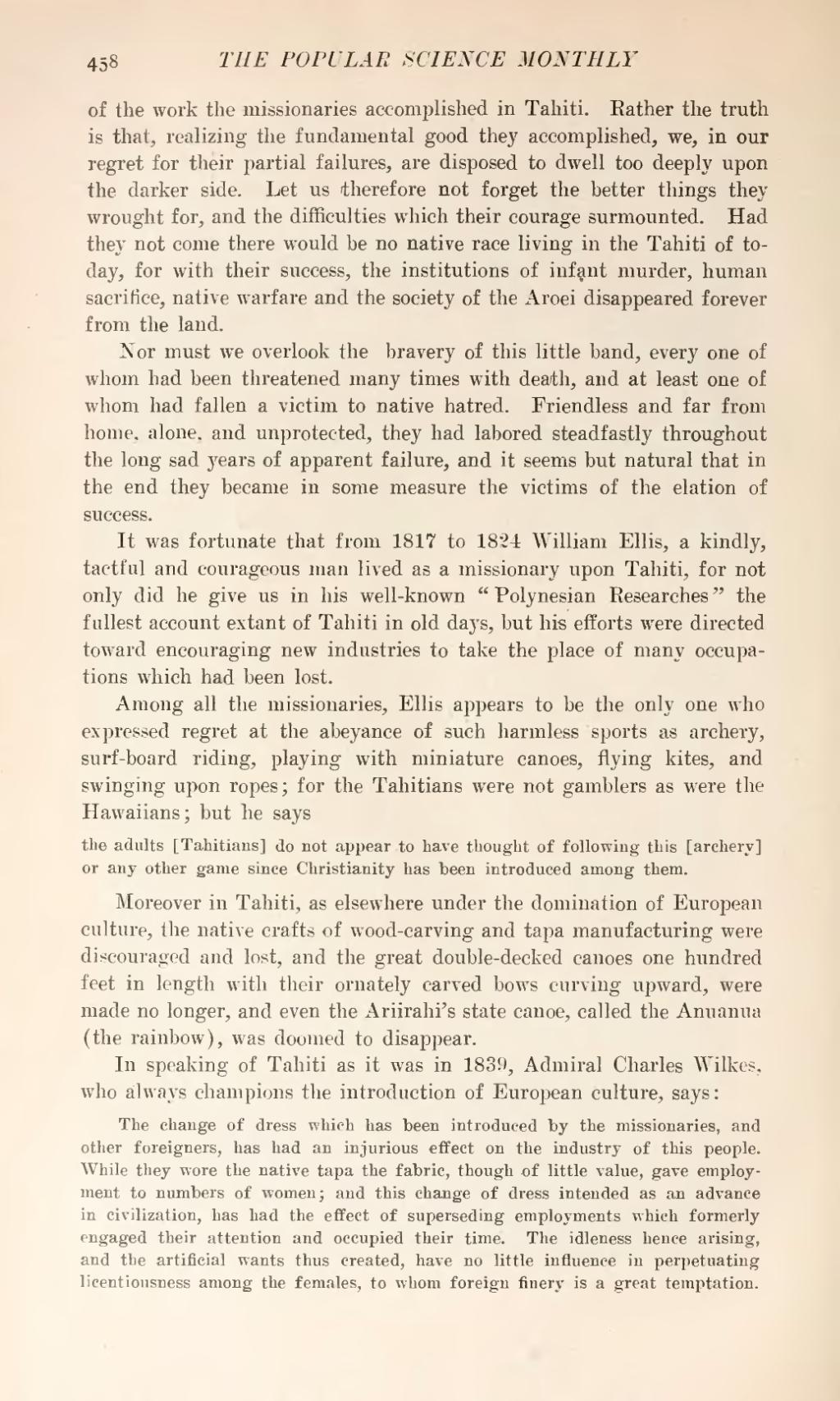of the work the missionaries accomplished in Tahiti. Bather the truth is that, realizing the fundamental good they accomplished, we, in our regret for their partial failures, are disposed to dwell too deeply upon the darker side. Let us therefore not forget the better things they wrought for, and the difficulties which their courage surmounted. Had they not come there would be no native race living in the Tahiti of today, for with their success, the institutions of infant murder, human sacrifice, native warfare and the society of the Aroei disappeared forever from the land.
Nor must we overlook the bravery of this little band, every one of whom had been threatened many times with death, and at least one of whom had fallen a victim to native hatred. Friendless and far from home, alone, and unprotected, they had labored steadfastly throughout the long sad years of apparent failure, and it seems but natural that in the end they became in some measure the victims of the elation of success.
It was fortunate that from 1817 to 1824 William Ellis, a kindly, tactful and courageous man lived as a missionary upon Tahiti, for not only did he give us in his well-known "Polynesian Researches" the fullest account extant of Tahiti in old days, but his efforts were directed toward encouraging new industries to take the place of many occupations which had been lost.
Among all the missionaries, Ellis appears to be the only one who expressed regret at the abeyance of such harmless sports as archery, surf-board riding, playing with miniature canoes, flying kites, and swinging upon ropes; for the Tahitians were not gamblers as were the Hawaiians; but he says
Moreover in Tahiti, as elsewhere under the domination of European culture, the native crafts of wood-carving and tapa manufacturing were discouraged and lost, and the great double-decked canoes one hundred feet in length with their ornately carved bows curving upward, were made no longer, and even the Ariirahi's state canoe, called the Anuanua (the rainbow), was doomed to disappear.
In speaking of Tahiti as it was in 1839, Admiral Charles Wilkes, who always champions the introduction of European culture, says:
